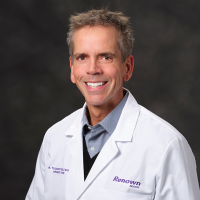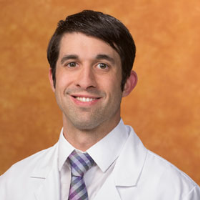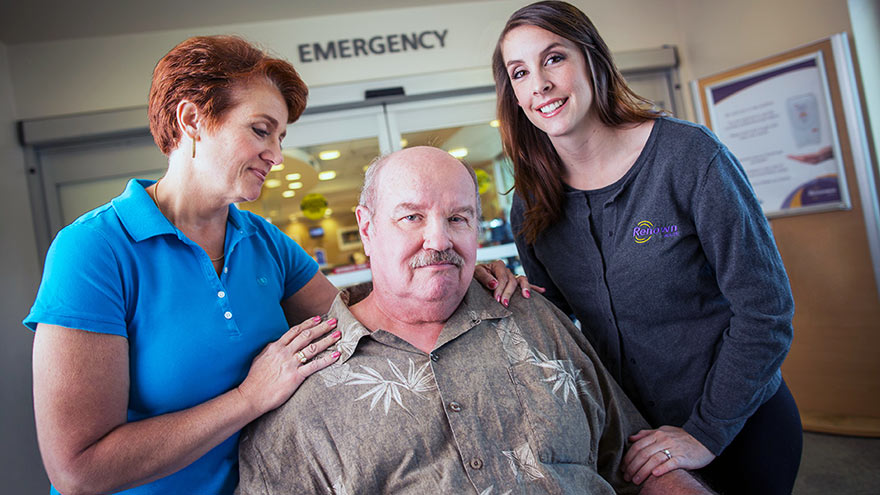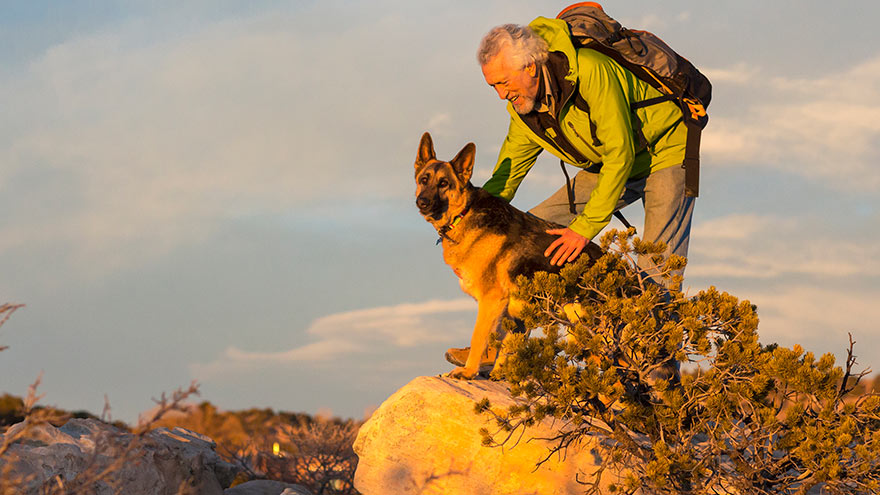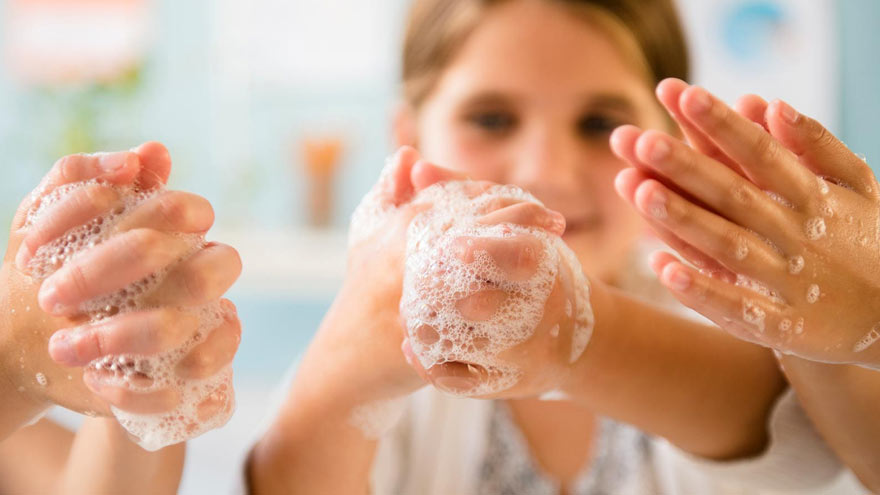Search
Results for 'urgent care'
Clear-
Three Emergency Room Options for You and Your Family
Renown Health has three emergency rooms open 24 hours a day, seven days a week, ready to serve our community. We checked in with Amy Hawkins, Manager of Clinical Nursing at Renown South Meadows, to learn more about the emergency room experience and how each can accommodate your emergency care needs. 1. Renown Regional Emergency Room The emergency room at Renown Regional Medical Center is the only Level II Trauma Center between Sacramento and Salt Lake City, treating more than 80,000 ER and trauma patients annually. Services Offered: This location offers immediate emergency care covered by general surgeons and coverage by the specialties of orthopedic surgery, neurosurgery, anesthesiology, emergency medicine, radiology and critical care. In addition, tertiary care needs include cardiac surgery, hemodialysis and microvascular surgery. (Patients may be referred to a Level I Trauma Center.) Renown Regional ER Location 2. Renown South Meadows Emergency Room South Reno is expanding, and so is Renown South Meadows ER! Exciting transformations are happening across this campus, including the new 121,000-square-foot specialty care center and upgrades to the existing medical center—expanding care to our patients. Added benefits to the more intimate setting at South Meadows: Smaller ER also means more personal experience. The team traditionally has more time to spend with each patient at the bedside. A smaller campus means convenient parking, as the ER is just outside the front entrance; however, patients are reminded to follow marked road signs when approaching the campus during construction. Most patients arrive by private vehicle versus an ambulance, so we are very accustomed to thinking quickly on our feet. Benefits to new construction: A new Cath lab will allow us to treat patients experiencing a heart attack and needing immediate intervention to open vessels in their hearts. Additional lab and imaging capabilities for our patients Services Offered: This location offers immediate emergency care staffed with board-certified emergency physicians. Patients can expect one-on-one interactions with trusted providers and shorter wait times. All emergency room services are open during construction, and patients are reminded to follow marked road signs when approaching the campus. South Meadows ER Location 3. Renown Children's Hospital Emergency Room This location offers immediate emergency care, with pediatric specialists always on staff. In addition, the Children's ER lobby is ideal for our littlest patients, with a child-friendly atmosphere and vibrant colors to help decrease the anxiety accompanying emergencies. Medical equipment is sized just for kids, and we offer a distraction machine, games and movies to help children cope with what can be a traumatic experience, like getting an IV. In addition, we have Child Life Specialists available to provide emotional support to both children and their families. When to Bring Your Child to the ER: Allergic reactions Asthma attacks Baby under three months old with a temperature higher than 100.4 degrees Fahrenheit Broken bones Burns Choking or poisoning Difficulty breathing Eye injuries Fainting, dizziness and confusion Head injuries Heart attack Rashes Seizures Severe bleeding Severe headache Severe pain Skin infections Stitches Stroke Venomous stings and bites Renown Children's Hospital Location
Read More About Three Emergency Room Options for You and Your Family
-
Attending Burning Man? Health Tips From Renown
Renown Health welcomes you back from Burning Man. To make sure you have the support you need, here are some tips on where to get healthcare after your return from the playa. Our urgent cares see patients 365 days a year for medical concerns that are urgent but not life-threatening. This can include fractures, cuts, burns, sprains, fevers, animal bites, rashes, sore throats and fevers. Where To Get COVID-19 & Mpox Tests in Reno-Sparks Renown Health’s emergency rooms do not provide walk-in COVID-19 or Mpox testing for patients. If you are experiencing symptoms related to COVID-19 or Mpox, we recommend you make an appointment with your primary care provider or visit one of our urgent care locations. Testing for COVID-19 is also available at local pharmacies in the Reno-Sparks area. Please visit Washoe County's COVID-19 page to learn more.
Read More About Attending Burning Man? Health Tips From Renown
-
Emergency Hiking Kit Essentials
With the help of Aaron Bertalmio, MD of Renown Urgent Care, we're sharing nine essential must-have items for your hiking emergency kit. 9 Essential Items For Your Hiking Emergency Kit With more than 300 days of sunshine in Reno-Tahoe and plenty of trails to explore, you'll want to keep these essential items in your kit. 1. Water Surprisingly, this no-brainer, however, is often overlooked. Bring enough water to last for the entire adventure. This amount of water can be heavy depending on the distance, altitude or intensity. With this in mind, the next best bet is to filter or purify water from a lake or stream. Here's how: You can do this with iodine or chlorine dioxide tablets, charcoal or an ultraviolet light wand. Tip: Look for water that is moving or rushing over rocks. Having enough water or filtration cannot be underestimated. "If you become injured and need to wait for help, you can only last about three days without water," Dr. Bertalmio says. 2. Food Meals-Ready-to-Eat (MREs) or dehydrated food pouches are essential, ensuring you have plenty to eat if you're outdoors longer than expected. 3. Maps Bring a printed map, compass or GPS. You can't always rely on your smartphone, so this is the perfect backup plan. 4. First-Aid Supplies Your hiking first-aid kit should change based on the type of hiking. As a basic rule, keep the following items in your pack: Fever/pain reliever Sewing kit with safety pins Tweezers Bandages and moleskin Antibiotic ointment Duct or medical tape Whistle 5. Light Source Wear or pack a small headlamp to illuminate the way if you get caught outside after sunset or in a poorly lit area. Headlamps are also great in emergencies because they are hands-free. 6. Emergency Shelter Even if you're only going out for the day, pack a low-weight emergency blanket for the trip. In other words, if the day trip turns into an overnight adventure, the blanket will keep you warm and alive in the event of cold temperatures. 7. Fire Starter Pack small tools in your hiking emergency kit to ensure an easy fire start. Waterproof matches, a knife, a lighter, or a strike fire starter are great options. Tip: Bring a multi-tool, including a knife and scissors that can be used for first-aid. 8. Layers of Clothing Mother Nature likes to change her mind in northern Nevada, and temperatures vary significantly within 24 hours. Therefore, pack a compact, lightweight waterproof and windproof jacket. This will protect you from being uncomfortably chilly and experiencing hypothermia. "Hypothermia is when your body temperature drops to a dangerously low level. You want to avoid this completely by keeping body temperature regulated outdoors and avoiding cold water immersion," says Dr. Bertalmio. 9. Sun Protection Certainly, sun protection should be part of your daily routine and an essential in your hiking emergency kit. You'll want to bring enough sunblock to reapply in direct sunlight and layers to cover exposed skin every two hours. Dr. Bertalmio reminds everyone the sun is intense in northern Nevada. "The higher altitude means an increased risk of sun-induced skin damage," he explains. "Some trails can reach above 10,000 feet, and at that altitude, UV radiation could be 35 to 45 percent more intense than at sea level."
-
Tips for Coping with Smoke-Related Health Problems
Millions of people across the west live in areas where air pollution can cause serious health problems. In addition, local air quality can affect our daily lives. Who is Affected? Kouros Farro, MD, a physician with Renown Urgent Care, advises that certain people are more likely to be affected when fine particle pollution reaches an unhealthy level. People who have asthma or other breathing conditions like chronic obstructive pulmonary disease (COPD). People who have heart disease or high blood pressure. Children and older adults. People of all ages who are doing extended or heavy physical activity like playing sports or working outdoors. “Everyone should take precautions when the air quality is unhealthy. Air pollution can aggravate heart and cardiovascular disease as well as lung diseases like asthma and COPD. When the air quality is unhealthy, people with these conditions may experience symptoms like chest pain, shortness of breath, wheezing, coughing, or fatigue. If you are experiencing any of these symptoms, use your inhalers as directed and contact your health care provider,” says Dr. Farro, who is board certified in family medicine and practices at Renown Urgent Care at 975 Ryland St. in Reno. “If you do not have a health care provider, there is a Renown Urgent Care office on almost every corner, with providers ready to see you.” Dr. Farro advises the following: Take it easy and listen to your body. Limit, change or postpone your physical activity level. If possible, stay away from local sources of air pollution like busy roads and wood fires. If you have asthma or other breathing conditions like COPD, make sure you have your relief/rescue inhaler with you. People with asthma should review and follow the direction in their written asthma action plan. Make an appointment to see your health provider to be sure you have an asthma action plan. Getting Same-Day Care Renown Urgent Care provides same-day treatment for a wide range of minor injuries, illnesses and medical concerns that are urgent but not life-threatening. Avoid the long wait times and high emergency room prices at 11 convenient sites, including Reno, Sparks, Carson City, USA Parkway, Fallon and Fernley. You can walk in or book ahead online. Make an Urgent Care Appointment Community Health Resources The Washoe County Health District offers online health information on its Smoke Smart website, including fire information, daily air quality information, fire and smoke maps and how to protect yourself. In addition, an online subscription page allows you to sign up for EnviroFlash, notifying you about air quality.
Read More About Tips for Coping with Smoke-Related Health Problems
-
6 Tips for Safe Snow Shoveling
While the appearance of a winter wonderland in your yard can be a welcome one, an accompanying aspect is not: the idea of clearing your driveway and sidewalks. The sometimes-daunting task of snow shoveling is a repetitive activity that can cause muscle strain to the lower back and shoulders. However, by following the tips below, you will spend more time appreciating your winter wonderland -- when your sidewalk and driveway are all clear, that is. But, we all know that injuries happen, and if you do find yourself with back pain that does not resolve in a few days, contact your primary healthcare provider, or visit a Renown Urgent Care. Another way to avoid injury during strenuous activity, or help heal an injury that won't go away, is to work with a physical therapist who can offer at-home exercises to keep your body strong. 6 Tips for Safe Snow Shoveling Following these tips from the American Physical Therapy Association can help you avoid injuries: Lift smaller loads of snow, rather than heavy shovelfuls. Be sure to bend your knees and lift with your legs, rather than your back. Use a shovel with a shaft that lets you keep your back straight while lifting. A short shaft will cause you to bend more to lift the load. Using a shovel that’s too long makes the weight at the end heavier. Step in the direction where you are throwing the snow to prevent the low back from twisting to help prevent “next-day back fatigue.” Avoid excessive twisting because the spine cannot tolerate this motion. Bend your knees and keep your back as straight as possible so that you are lifting with your legs. Take frequent breaks when shoveling. Stand up straight and walk around periodically to extend the lower back. Backward bending exercises while standing will help reverse the excessive forward bending of shoveling. Stand straight and tall, place your hands toward the back of your hips and bend slightly backward for several seconds. When in doubt, ask for help. The Reno community is a generous one and you can typically find snow shovelers for hire on local message boards like Nextdoor and Facebook. Or, if you have a kid in your neighborhood, they might be looking to make some extra money on a snow day.
-
Where There is Smoke; There May Be More Headaches, Nausea and Coughing
Renown Urgent Care team prepares you to stay safe this season and is available seven days a week at 11 locations across northern Nevada Millions of people across the West live in areas where air pollution can cause serious health problems. Local air quality can affect our daily lives. Like the weather, it can change from day to day. The Northern Sierra Air Quality Management District issued an Air Quality Health Advisory for Plumas County, to notify the public of the possibility of poor air quality conditions resulting from the Beckwourth Complex Fire in addition to other wildfires in northern California. In addition, there is the potential for wind shifts to carry smoke to other parts of Plumas County from the Beckwourth and several other regional wildfires. Air quality is expected to vary greatly depending on fire behavior and weather conditions, with smoke settling in low areas at night and in the early mornings as long as these fires are active. The advisory mentions, “Exposure to elevated PM2.5 (fine particulate matter in smoke) concentrations can result in eye and throat irritation, headaches, nausea, shortness of breath, congestion, coughing, impaired lung function and chest pain, especially among sensitive individuals such as the elderly, children, people with asthma, people with heart or lung conditions, pregnant women and anyone who is exercising or working hard outdoors.” Kouros Farro, MD, a physician with Renown Urgent Care advises that there are people who are more likely to be affected when fine particle pollution reaches an unhealthy level. People who have asthma or other breathing conditions like chronic obstructive pulmonary disease (COPD). People who have heart disease or high blood pressure. Children and older adults. People of all ages who are doing extended or heavy, physical activity like playing sports or working outdoors. “Everyone should take precautions when the air quality is unhealthy. Air pollution can aggravate heart and cardiovascular disease as well as lung diseases like asthma and COPD. When the air quality is unhealthy, people with these conditions may experience symptoms like chest pain, shortness of breath, wheezing, coughing, or fatigue. If you are experiencing any of these symptoms, use your inhalers as directed and contact your health care provider,” says Dr. Farro, who is board certified in family medicine and practices at Renown Urgent Care at 975 Ryland St in Reno. “If you do not have a health care provider, know we have a Renown Urgent Care office on almost every corner, with providers ready to see you.” Dr. Farro advises the following: Take it easy and listen to your body. Limit, change, or postpone your physical activity level. If possible, stay away from local sources of air pollution like busy roads and wood fires. If you have asthma or other breathing conditions like COPD make sure you have your relief/rescue inhaler with you. People with asthma should review and follow guidance in their written asthma action plan. Make an appointment to see your health provider to be sure you have an asthma action plan. “Even just one hour of smoke exposure can affect our lungs and hearts, and these consequences can reach people far beyond the direct area endangered by the fire. Children, older adults, pregnant women, people with preexisting cardiopulmonary disease, communities of color, economically disadvantaged communities, and people with preexisting chronic health conditions like asthma, diabetes, and obesity are all especially vulnerable to the air pollution that wildfires cause," says Dr. David Lemak, Division Chief of Urgent Care at Renown. Renown Urgent Care provides treatment for a wide range of minor injuries, illnesses and medical concerns that are urgent but not life-threatening, that require same-day medical attention and avoid the long wait times and high prices of the emergency room at 11 convenient sites, including Reno, Sparks, Carson City, USA Parkway, Fallon and Fernley. You can walk-in or book ahead online. You can get the latest fire and smoke information at the Washoe County Health District’s Be Smoke Smart webpage. It includes information about air pollution levels and how to protect yourself from the smoke. An on-line subscription page allows you to sign up for EnviroFlash, notifying you about air quality. About Renown Health Renown Health is a locally governed, not-for-profit integrated healthcare network serving northern Nevada, Lake Tahoe and northeast California. Renown is one of the region’s largest private employers with a workforce of more than 7,000. It comprises three acute care hospitals, a rehabilitation hospital, the area’s most comprehensive medical group and urgent care network, and the region’s largest and only locally owned not-for-profit insurance company, Hometown Health. Renown has a long tradition and commitment to continually improve the care and the health of our community. For more information, visit renown.org.
Read More About Where There is Smoke; There May Be More Headaches, Nausea and Coughing
-
Wildfire Smoke More Dangerous Than Other Air Pollution for People With Asthma
Stage 2 Air Quality Index and alarming research studies from DRI, Renown Health and the Washoe County Health District leads to public health advisory- seek care if needed For people who suffer from asthma, wildfire smoke is more hazardous than other types of air pollution, according to a study from the Desert Research Institute (DRI), the Renown Institute for Health Innovation (Renown IHI) and the Washoe County Health District (WCHD). The study published in the journal Environmental Health examined associations between airborne particulate matter (PM) from sources such as wildfire, transportation and industry, and medical visits for asthma at Renown Health’s emergency departments and urgent care centers in Reno, Nev. during the six-year period from 2013-2018. In places like Reno, where wildfire events occur regularly during parts of the year and are expected to become more frequent in the future, an accurate understanding of the impacts of wildfire smoke on population health is critical. We have an exceptional process in place through our urgent care sites, Renown Medical Group offices and hospital emergency departments to screen, diagnose and treat members of our community who come to us for care related to asthma, chronic obstructive pulmonary disease (COPD), chronic bronchitis, emphysema, and other upper respiratory diseases that may be exacerbated by wildfire smoke. At the same time, we continue to develop and refine, in real-time, the data that supports our predictive analytic models. We are using every tool and resource-including scientific data and clinical reporting, to ensure that we are meeting both the health and healthcare needs of the people we serve. In the study, researchers found that air quality in the Reno area was affected by wildfire smoke on a total of 188 days during the study period. A total of 18,836 asthma-related emergency room and urgent care visits occurred over the same five-year period of time, indicating that the influences of wildfire smoke and other types of air pollution on this medical condition are important to understand. The Washoe County Health District – Air Quality Management Division (AQMD) has issued a Stage 2 Air Pollution Warning due to smoke from area wildfires. Air quality in the Reno-Sparks area is now “Very Unhealthy” with an Air Quality Index of 247. The Stage 2 warning means that all residents should stay indoors and reduce activity levels due to the susceptibility of increased health risks. To see current air quality in Reno-Sparks, click here. Brion Hill, MD who practices at the Renown Urgent Care - Los Altos location warns, “This is an important health advisory, exposure to elevated PM2.5 (fine particulate matter in smoke) concentrations can result in eye and throat irritation, headaches, nausea, shortness of breath, congestion, coughing, impaired lung function and chest pain. Everyone should take precautions when the air quality is unhealthy. Air pollution can aggravate heart and cardiovascular disease as well as lung diseases like asthma and COPD. When the air quality is unhealthy, people with these conditions may experience symptoms like chest pain, shortness of breath, wheezing, coughing, or fatigue. If you are experiencing any of these symptoms, use your inhalers as directed and contact your health care provider,” says Dr. Hill. “If you do not have a health care provider, we have 11 conveniently located Renown Urgent Care offices with providers ready to see you 7 days a week." Dr. Joseph Grzymski, a research professor at Desert Research Institute, a corresponding author on the study and Chief Scientific Officer, Renown Health, says, “This air is very bad for your health. Given today’s Air Quality Index in Reno, being outside and breathing this air for a day equals about smoking half a package of cigarettes.” Additional Information: The full text of the article “Particulate matter and emergency visits for asthma: a time-series study of their association in the presence and absence of wildfire smoke in Reno, Nevada, 2013–2018,” is available from Environmental Health: https://ehjournal.biomedcentral.com/articles/10.1186/s12940-020-00646-2 To learn more about the Renown Institute for Health Innovation, please visit: https://www.dri.edu/renown-ihi/ Renown Urgent Care provides treatment for a wide range of minor injuries, illnesses and medical concerns that are urgent but not life-threatening, that require same-day medical attention and avoid the long wait times and high prices of the emergency room at 13 convenient sites, including Reno, Sparks, Carson City, USA Parkway, Fallon and Fernley. You can walk-in or book ahead online. The Washoe County Health District offers online health information on its Be Smoke Smart website, including fire information, daily air quality information, fire and smoke maps and how to protect yourself. About the Desert Research Institute The Desert Research Institute (DRI) is a recognized world leader in basic and applied interdisciplinary research. Committed to scientific excellence and integrity, DRI faculty, students, and staff have developed scientific knowledge and innovative technologies in research projects around the globe. Since 1959, DRI’s research has advanced scientific knowledge, supported Nevada’s diversifying economy, provided science-based educational opportunities, and informed policymakers, business leaders, and community members. With campuses in Reno and Las Vegas, DRI serves as the non-profit research arm of the Nevada System of Higher Education. For more information, visit www.dri.edu. About Renown Health Renown Health is a locally governed, not-for-profit integrated healthcare network serving northern Nevada, Lake Tahoe and northeast California. Renown is one of the region’s largest private employers with a workforce of more than 7,000. It comprises three acute care hospitals, a rehabilitation hospital, the area’s most comprehensive medical group and urgent care network, and the region’s largest and only locally owned not-for-profit insurance company, Hometown Health. Renown has a long tradition and commitment to improve the care and the health of our community. For more information, visit renown.org.
Read More About Wildfire Smoke More Dangerous Than Other Air Pollution for People With Asthma
-
What You Need To Know About Flu Shots
Flu shots don’t just protect those who get vaccinated; they guard everyone, including your family and the community. Renown Health experts help us understand why everyone should get a flu shot, including children, pregnant women and older adults. Ways to Schedule Your Flu Shot Call Us! 775-982-5000 Urgent Care Appointments Renown Pharmacy Vaccinations Make an Appointment via MyChart Need a Doctor? Find One Now Flu Shot Information Whitney Robinson, Renown Health Infection Prevention Expert Chills, body aches, fever and congestion; getting the flu isn’t fun. When you get a flu shot, you’re not just protecting yourself, you’re also helping reduce the total flu cases and hospitalizations. The ideal time to get your flu shot is September through October. This timing allows the vaccine to provide the strongest protection during the length of flu season. However, getting the vaccine later is better than not at all as it's still flu season well into spring. Flu Symptoms In general, influenza (flu) is worse than the common cold and shares symptoms with COVID-19, causing mild to severe illness, and at times can lead to death. Symptoms include: Fever or feeling feverish/chills (not everyone will have a fever) Cough and/or sore throat Runny or stuffy nose Headaches, muscle or body aches Fatigue (tiredness) Vomiting and diarrhea, though this is more common in children than adults Who Needs a Flu Shot? Almost everyone. The Centers for Disease Control and Prevention (CDC) considers it the first and most crucial step in protecting against the flu virus. Therefore, they recommend the yearly flu shot for those six months of age and older. Does the Flu Shot Help with COVID-19? The short answer is no. However, flu vaccines can reduce the risks of flu illness and hospitalization. Therefore, it is crucial for you to get your flu shot to not only protect yourself and the community, but also to help conserve vital, local healthcare resources. CDC Resource: Who Needs a Flu Vaccine and When Kids, the Elderly and Flu Shots Vanessa Slots, M.D., Renown Medical Group The flu is not a passing cold. It is a serious illness that takes lives every year and it happens like clockwork. The onset of flu season is fall and lasts through winter into the spring months. This lung illness is caused by viruses, with yearly outbreaks occurring worldwide. No one is immune, and anyone can catch to the flu. Flu Signs and Symptoms Quick onset of fever Headache Body aches and fatigue along with respiratory symptoms including cough Sore throat and nose Who's at Risk for the Flu? Children and the elderly are at greater risk of complications from the flu, specifically toddlers less than two years old. At this age, their immunity is still developing. Seniors over 65 are also at increased risk because their immune systems have weakened with age. The severity of a child’s symptoms depends on age and prior exposure to the virus. With young children, for example, the flu is more problematic since they cannot talk and communicate their symptoms. As a result, children often experience higher fevers, which can lead to seizures or convulsions. This can be coupled with issues such as nausea, vomiting, diarrhea and poor appetite, all of which put children at risk of dehydration and other complications that can require hospitalization. An average of 20,000 children are hospitalized for flu each year. Pre-Existing Health Issues Ongoing health conditions including asthma, heart conditions, diabetes and more can intensify flu symptoms. Still, many children without risk factors can experience severe flu complications. CDC Resource: Flu Information for Parents Pregnant Moms and Flu Shots Tamsen Carson, PAC, Surgical First Assistant, OB/GYN, Renown Medical Group “During pregnancy, your immune system wards off infection for your baby, leaving you more susceptible to infection and adverse health conditions,” Tamsen explains. She highly recommends flu shots for ALL women during pregnancy. You must receive the injected vaccine versus the live vaccine, a nasal spray, which can cause the flu to occur. Passing Flu Immunity on to Your Baby Also, remember that you will also be able to pass the immunity onto your baby if you breastfeed, which will protect your baby from the flu. CDC Resource: Flu Safety and Pregnancy
-
Your Ultimate Cold and Flu Survival Guide
While viruses can attack year-round, colds, flus and other respiratory illnesses are typically more prevalent during fall and winter. People spend more time indoors, which allows viruses to pass more easily from one person to another. The cold, dry air can also affect the respiratory system, making it more susceptible to germs. According to the CDC, flu activity in the U.S. often begins to increase in October and peaks between December and February. “Flu season” can last as late as May. When it comes to the cold and flu, prevention and preparation are key. Getting the flu shot and a COVID-19 vaccine is the first and most crucial step in protecting against these two respiratory illnesses. Preventative actions, such as washing your hands, covering your mouth and nose when coughing or sneezing and getting enough sleep can also help you avoid getting sick. However, despite your best prevention efforts, the time may come this winter when you start to feel a little scratch in your throat or a fever coming on. By taking steps ahead of time to assemble a cold and flu survival kit, you’ll be more prepared for whenever illness strikes, allowing you to stay home, rest and avoid spreading germs. Tips for Managing Symptoms Keep these tips in mind to ease your cold or flu symptoms: Stay home and rest Drink plenty of fluids Treat aches and fever with over-the-counter medication such as ibuprofen or acetaminophen Manage a cough with over-the-counter expectorants or suppressants Run a humidifier or sit in a steamy bathroom to ease congestion What to Stock in Your Flu Survival Kit Be ready when a cold or the flu strikes by having a flu survival kit filled with these get-well essentials stocked in your pantry, fridge and medicine cabinet: Over-the-Counter Medications: Take advantage of over-the-counter medications to make yourself feel better and ease most common flu symptoms of fever, headache, cough, muscle aches, sore throat, and runny or stuffy nose Pain relievers - Ibuprofen (Motrin and Advil) or Acetaminophen (Tylenol): for fever and aches Decongestants: for sniffles and congestion Cough expectorant (guaifenesin): for a “wet” cough to help clear secretions from the lungs Cough suppressant (dextromethorphan/DM): for a severe “dry” cough to block the cough reflex Cough syrups and drops Drinks: Water Herbal tea Low-sugar sports drinks Pedialyte Foods: Chicken soup Broth Vitamin C-containing fruits and vegetables Oatmeal Toast (add some avocado, honey or egg) Miscellaneous items: Tissues Lozenges Protective mask Thermometer Humidifier When to Seek Care and Where to Go Most healthy adults who have a cold, the flu, or other mild respiratory illnesses don’t need to see a care provider and will recover at home with self-care measures. Because these are viral illnesses, antibiotics won’t work against treating them. Your care provider may be able to prescribe an antiviral medication that can relieve your symptoms and shorten the duration and severity of your illness; however, this needs to be started within 48 hours of symptom onset and is often only prescribed to individuals at high risk for developing complications from the flu or those experience severe symptoms. Primary Care or Urgent Care Contact your primary care provider or visit an Urgent Care if you are at an increased risk, including those who: Are 65 years of age or older Have chronic medical conditions Are pregnant or recently gave birth Have a weakened immune system Find a primary care provider If you are otherwise healthy and not at increased risk of complications, seek medical advice if your flu symptoms are unusually severe, such as mild difficulty breathing, a severe sore throat, coughing that produces a lot of green or yellow mucus, or feeling faint. Emergency Care Go to the Emergency Department if you are experiencing emergency warning signs such as severe pain (chest, abdomen), concern for heart attack or stroke (slurred speech, new localized weakness), severe dehydration (needing IV fluids) or severe shortness of breath.
-
Avoid Viruses, Colds and the Flu With Expert Hand-Washing Advice
Can you really avoid colds, flu and viruses with simple hand-washing? Amy McCombs, Renown’s director of Infection Prevention, shares how to stay healthy with this very simple practice. Shaking hands, turning doorknobs, drafting emails — all regular activities of everyday life. But whenever you touch another person, or touch an object another person has touched, you’re collecting their germs on your hands. And touching your own mouth, eyes or nose also exposes you to whatever germs you’ve collected. That makes hand-washing the most important step you can take to prevent illness and disease. And while that may seem like an obvious reminder, studies have found that 85 percent of people do not practice proper hand hygiene. We asked Amy McCombs, Renown’s director of Infection Prevention, to give us some hand-washing tips for a safer, healthier life. So what are the correct hand-washing steps? Wash for at least 20 seconds. The biggest thing to remember is to wash for at least 20 seconds with soap and water. A good rule to make sure you’re washing long enough is to sing “Happy Birthday” twice through. Get a good lather of soap going. It’s also important to get a nice lather of soap and make sure you wash between your finger, both the tops and palms of your hands and your nail beds. And if you wear jewelry, you need to remove it or make sure you get lather and friction underneath. Then rinse completely and dry. Is there a wrong way to wash your hands, or is it more about making sure you do it the right way? Honestly, it’s a little bit of both. There is a wrong way since 85 percent of us don’t wash correctly. This could be for a variety of reasons. It could be because you don’t wash long enough, don’t get in between your fingers, don’t clean your palms or don’t clean the tops of your hands. How frequently should we wash our hands? Are there certain times where it is more important than others? As most of us are taught as kids, you need to wash your hands before you eat or prepare foods, after you touch raw produce and meat and after you use the restroom. You should also wash your hands after sneezing or coughing, touching your eyes, nose and mouth or coming in contact with someone who is sick. Do you recommend hand-washing over hand sanitizer? Ideally, you should wash your hands instead of using hand sanitizer, but if sanitizer is all you have, then use it. Alcohol-based hand sanitizers are best. Use about a nickel or quarter size and vigorously rub the tops of your hands, palms and in between your fingers until the sanitizer is completely dry. Remember that if your hands are physically dirty, or if you’ve come in contact with bodily fluids, you should thoroughly wash your hands with soap and water instead of hand sanitizer. Does washing your hands really prevent illnesses like the cold, the flu and viruses? Definitely. The CDC recommends hand-washing as one of the best ways to avoid getting sick and spreading illness. Hand-washing has been shown to reduce the number of people who get colds and respiratory illnesses by 21 percent. What else can I do to keep my family healthy? The annual flu vaccine is truly the best form of protection to help prevent the spread of the flu. Even if you do get the flu after being vaccinated, your symptoms will be lessened. Although they are not substitutes for the flu vaccine, simple preventative action can do a lot to help slow the spread of the virus, including these: Wash your hands often Avoid touching your eyes, nose or mouth with unwashed hands Avoid contact with people who are sick Stay home when you are sick Cough or sneeze into a tissue or your sleeve Other precautionary measures include cleaning shared spaces and avoiding shared utensils and drinks. Flu vaccines are still available in the community, including health providers at Renown Medical Group. Call 775-982-5000 to make an appointment. More Hand-Washing Information One of the best things you can do to avoid viruses, colds and the flu is to wash your hands. Protect yourself with even more hand-washing advice from the Centers for Disease Control (CDC). Roll Up Your Sleeves and Scrub Up!
Read More About Avoid Viruses, Colds and the Flu With Expert Hand-Washing Advice
